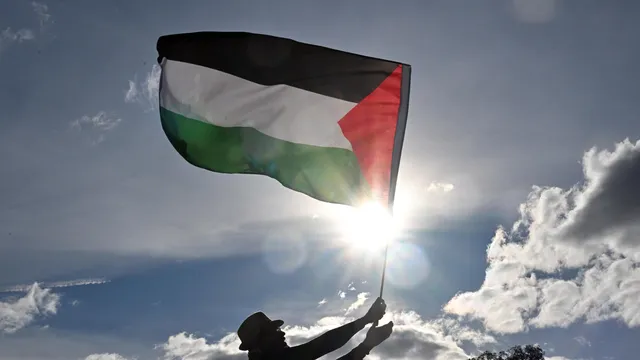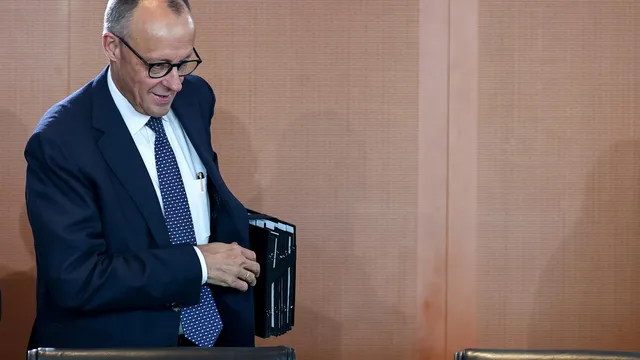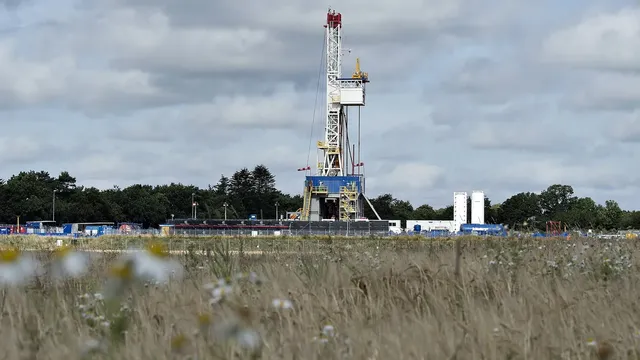Three-quarters of UN members have already recognized or plan to recognize the Palestinian state.
Today, Australia became the latest country to pledge to do so at the UN General Assembly in September.
The war that has been raging in Gaza since October 2023 has renewed global efforts to give the Palestinians their own state.
This move is at odds with the long-standing view that the Palestinians can only achieve statehood as part of peace negotiations with Israel.
According to AFP, at least 145 of the 193 UN members already recognize or plan to recognize a Palestinian state, including France, Canada, and the UK.
Here's a quick recap of the Palestinians' quest for statehood:
On November 15, 1988, during the first Palestinian intifada, or uprising against Israeli rule, Palestinian leader Yasser Arafat unilaterally declared an independent Palestinian state with Jerusalem as its capital.
He made this announcement in Algiers at a meeting of the Palestinian National Council, which is in exile and has adopted as its goal a two-state solution with independent Israeli and Palestinian states existing side by side.
Minutes later, Algeria became the first country to officially recognize the independent Palestinian state.
Within a week, dozens of other countries, including much of the Arab world, India, Turkey, most of Africa, and several countries in Central and Eastern Europe, followed suit.
The next wave of recognitions came in late 2010 and early 2011, at a time of crisis in the Middle East peace process.
South American countries, including Argentina, Brazil, and Chile, responded to Palestinian calls to support their claims to statehood.
This was in response to Israel's decision to end a temporary ban on Jewish settlement construction in the occupied West Bank.
In 2011, with peace talks stalled, the Palestinians continued their campaign for full UN membership.
The attempt failed, but in an unprecedented move on October 31 of that year, the UN cultural agency UNESCO voted to admit the Palestinians as a full member, much to the disappointment of Israel and the United States.
In November 2012, the Palestinian flag was raised for the first time at the United Nations in New York after the General Assembly voted overwhelmingly to upgrade the Palestinians' status to "non-member observer state."
Three years later, the International Criminal Court (ICC) also accepted the Palestinians as a member state.
Israel's offensive in Gaza, which began in 2023, strengthened support for Palestinian statehood.
Four Caribbean countries (Jamaica, Trinidad and Tobago, Barbados, and the Bahamas) and Armenia took diplomatic steps in 2024.
Four European countries did the same:
Norway, Spain, Ireland, and Slovenia, the latter three being EU members.
Within the European Union, this was the first such move in 10 years, after Sweden did the same in 2014, leading to years of strained relations with Israel.
Other member states, such as Poland, Bulgaria, and Romania, had already done so in 1988, long before joining the EU.
On the other hand, some former Eastern Bloc countries, such as Hungary and the Czech Republic, do not recognize or no longer recognize the state of Palestine.
Australian Prime Minister Anthony Albanese announced today that "Australia will recognize the Palestinian people's right to a state" before the UN General Assembly.
France announced last month that it intends to recognize a Palestinian state in September, and Britain said it would do the same unless Israel takes "substantial steps," including agreeing to a ceasefire in Gaza.
Canada also plans to recognize a Palestinian state in September, Prime Minister Mark Carney said, marking a dramatic shift in policy that was immediately rejected by Israel.
Other countries that could also express official recognition include Malta, Finland, and Portugal. | BGNES
---
Analysis provided by AFP.

 Breaking news
Breaking news
 Europe
Europe
 Bulgaria
Bulgaria







